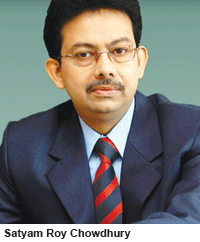Following the end of 34 years of rule (1977-2011) of the Communist Party of India (CPM)-led Left Front government in West Bengal (pop. 90 million) in which private initiatives in higher education were strictly verboten, the legislative assembly passed the Techno India University Bill 2012 on July 6 to establish West Bengal’s first private university under state legislation.
Under the Constitution, higher education is a concurrent subject (List III) authorising the Central and state governments to pass enabling legislation to establish institutions of education. But for ideological reasons the Left Front government never availed this option in higher education. The Ramakrishna Mission Vivekananda University (estb. 2005) — the first private university in the state — was established by special Central legislation. Meanwhile several state governments have exercised this option to promote high quality private universities which have significantly expanded higher education capacity. Among them: Uttar Pradesh (Amity University); Rajasthan (Amity and NIIT universities); Delhi (Sharda University) and Punjab (Lovely University).
“This year the difference between the number of students who cleared the class XII exams and seats in colleges was 50,000. Setting up private universities will help bridge this gap. In addition, setting up private universities will generate job opportunities for teachers and non-teaching employees. If any new proposal for establishing private universities comes before us, we will ask them to locate the facility in Jangalmahal (the Maoist-hit area of West Bengal) or Darjeeling,” says the state’s education minister Bratya Basu.
Expectedly, the CPM and Left Front parties boycotted the house during the discussion on the Techno India University Bill. “Everybody knows about the exorbitant fee structures of private educational institutes. We were always against — and remain opposed — to the entry of private universities in mainstream higher education. However, when we were in government we had approved a technical higher education institute — the Dhirubhai Ambani Institute of Information and Communication at Kalyani. But the Trinamool government has allowed the Bill to lapse,” says Surjya Kanta Mishra (CPM), leader of the opposition.
 The choice of the Kolkata-based Techno India Group (TIG) to promote West Bengal’s first state government legislated university is difficult to fault. Promoted in 1983, TIG currently comprises 15 engineering colleges, ten business schools and ten primary-secondary schools with an aggregate enrolment of 40,000 students in 20 campuses in urban India, offering professional (science, engineering, law, business management etc) education. The main campuses of the proposed Techno India University will be established in Kolkata’s Salt Lake and in Bishnupur, Joka.
The choice of the Kolkata-based Techno India Group (TIG) to promote West Bengal’s first state government legislated university is difficult to fault. Promoted in 1983, TIG currently comprises 15 engineering colleges, ten business schools and ten primary-secondary schools with an aggregate enrolment of 40,000 students in 20 campuses in urban India, offering professional (science, engineering, law, business management etc) education. The main campuses of the proposed Techno India University will be established in Kolkata’s Salt Lake and in Bishnupur, Joka.
According to Satyam Roy Chowdhury, managing director of TIG, total investment of Techno India Trust in the university will aggregate Rs.10,000 crore with the varsity committed to providing undergraduate and postgrad programmes in science, technology, and business management initially, and subsequently in the social sciences, medicine and law. “The university will carry on TIG’s legacy of providing quality education, research and development, entrepreneurship programmes and excellent placement records with the best companies in India and abroad. TIG will now contribute towards mass education on a larger scale,” says Roy Chowdhury.
To assuage such diehard suspicion of West Bengal’s academia deeply penetrated by Marxist ideologues, the Trinamool Congress government led by the fiery chief minister Mamata Banerjee is determined to expand higher education which received scant attention during 34 years of Left Front rule in the state. Two other Bills including the Cooch Behar Panchanan Barma University Bill, 2012 and the Kazi Nazrul University Bill, 2012 were also passed in the assembly on July 6. Banerjee informed the house that Cooch Behar will soon have a university, and that Kazi Nazrul University will be sited in Asansol. “The three new universities will provide ample opportunities for the young generation to avail management, engineering and professional education in the state, instead of migrating to other states,” she said, while moving the Bills.
While attracting sufficiently qualified faculty into West Bengal’s three new universities is yet an unforeseen problem, the great majority of academics in Kolkata welcome overdue capacity expansion in the state’s moribund higher education sector.
Baishali Mukherjee (Kolkata)























